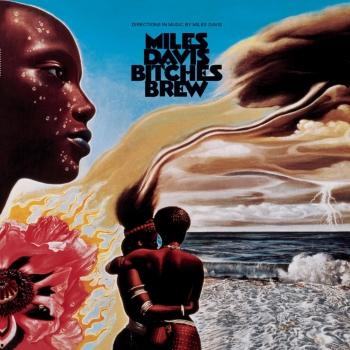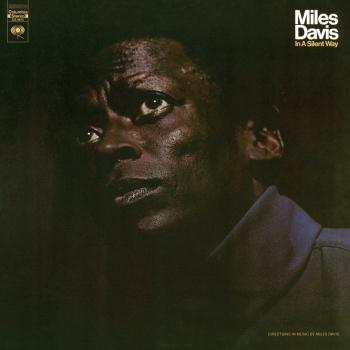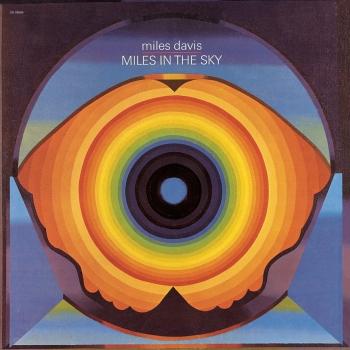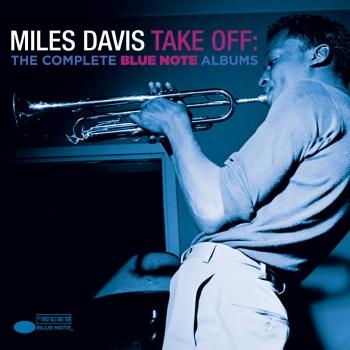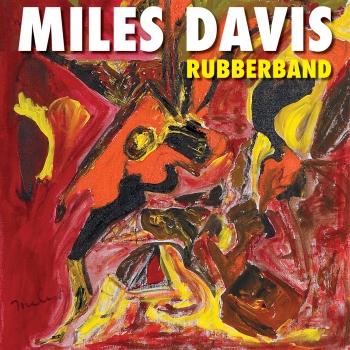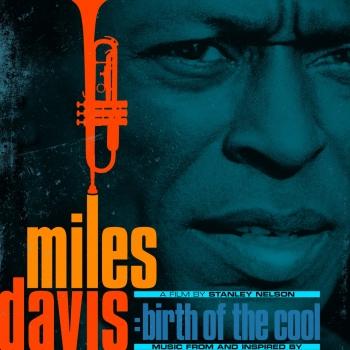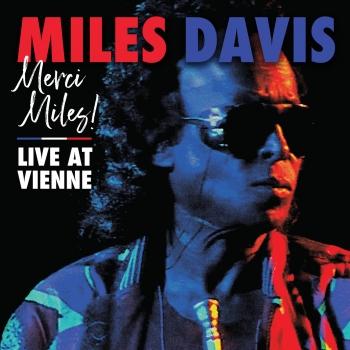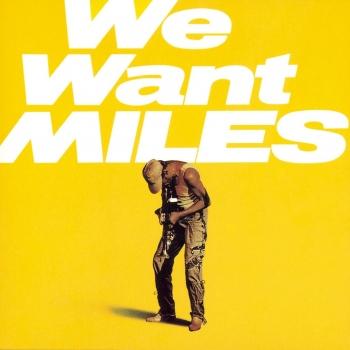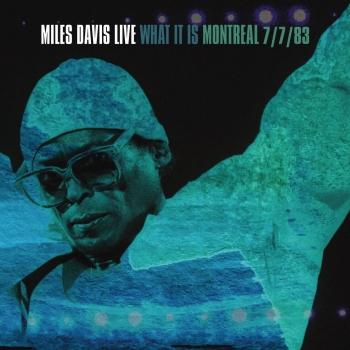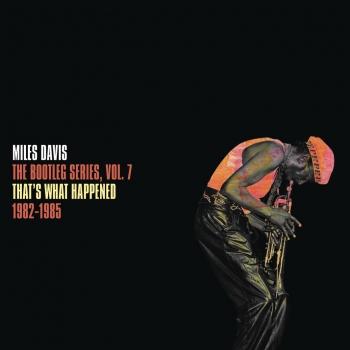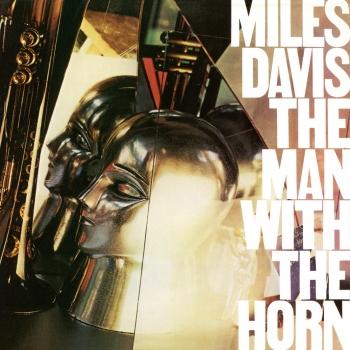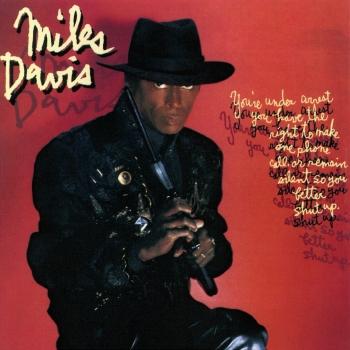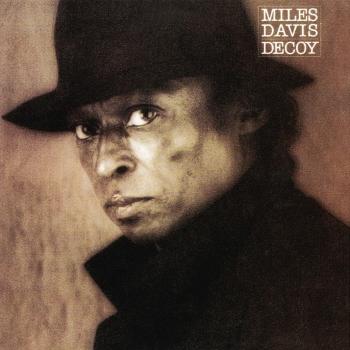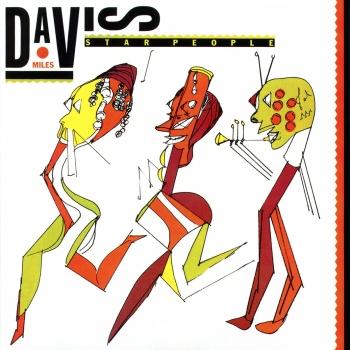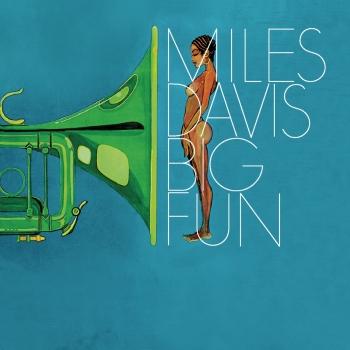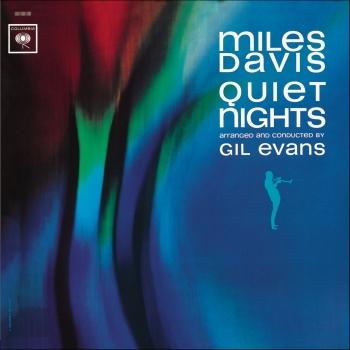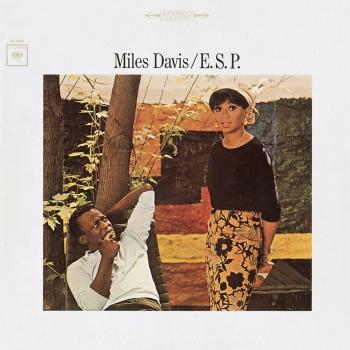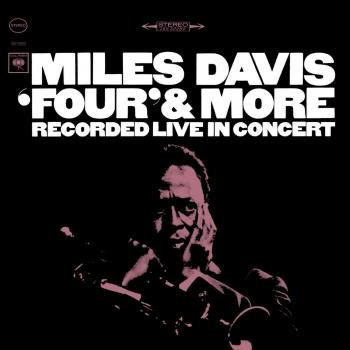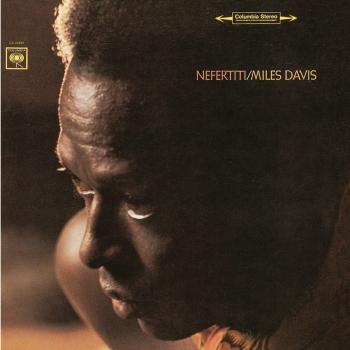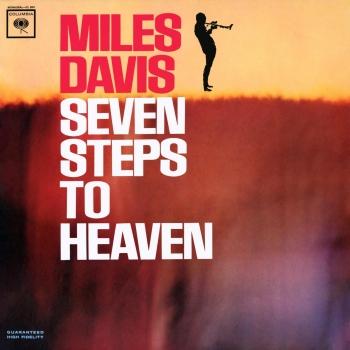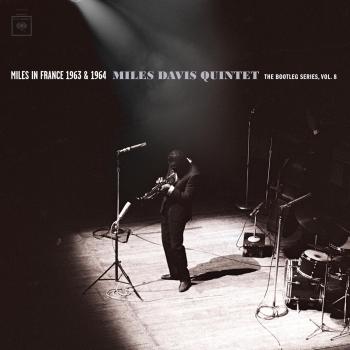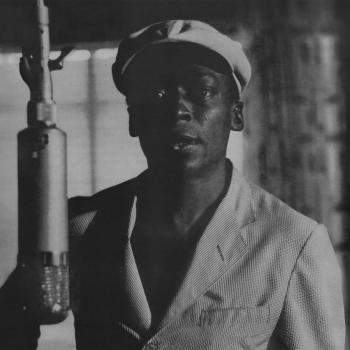
Miles in France 1963 & 1964 - Miles Davis Quintet: The Bootleg Series, Vol. 8 (Live) (Mono Remastered) Miles Davis
Album info
Album-Release:
2024
HRA-Release:
08.11.2024
Album including Album cover
I`m sorry!
Dear HIGHRESAUDIO Visitor,
due to territorial constraints and also different releases dates in each country you currently can`t purchase this album. We are updating our release dates twice a week. So, please feel free to check from time-to-time, if the album is available for your country.
We suggest, that you bookmark the album and use our Short List function.
Thank you for your understanding and patience.
Yours sincerely, HIGHRESAUDIO
- 1 Introduction by Andre Francis (Live at Festival Mondial Du Jazz Antibes/Juan-Les-Pins, France - July 26, 1963) 00:46
- 2 So What (Live at Festival Mondial Du Jazz Antibes/Juan-Les-Pins, France - July 26, 1963) 09:46
- 3 All Blues (Live at Festival Mondial Du Jazz Antibes/Juan-Les-Pins, France - July 26, 1963) 11:59
- 4 Stella By Starlight (Live at Festival Mondial Du Jazz Antibes/Juan-Les-Pins, France - July 26, 1963) 14:12
- 5 Seven Steps to Heaven (Live at Festival Mondial Du Jazz Antibes/Juan-Les-Pins, France - July 26, 1963) 11:01
- 6 Walkin' (Live at Festival Mondial Du Jazz Antibes/Juan-Les-Pins, France - July 26, 1963) 10:41
- 7 My Funny Valentine (Live at Festival Mondial Du Jazz Antibes/Juan-Les-Pins, France - July 26, 1963) 09:56
- 8 Joshua (Live at Festival Mondial Du Jazz Antibes/Juan-Les-Pins, France - July 26, 1963) 11:04
- 9 The Theme (Live at Festival Mondial Du Jazz Antibes/Juan-Les-Pins, France - July 26, 1963) 02:59
- 10 Closing announcement by Andre Francis (Live at Festival Mondial Du Jazz Antibes/Juan-Les-Pins, France - July 26, 1963) 00:37
- 11 Introduction by Andre Francis (Live at Festival Mondial Du Jazz Antibes/Juan-Les-Pins, France - July 27, 1963) 00:46
- 12 Autumn Leaves (Live at Festival Mondial Du Jazz Antibes/Juan-Les-Pins, France - July 27, 1963) 13:52
- 13 Milestones (Live at Festival Mondial Du Jazz Antibes/Juan-Les-Pins, France - July 27, 1963) 09:17
- 14 I Thought About You (Live at Festival Mondial Du Jazz Antibes/Juan-Les-Pins, France - July 27, 1963) 11:44
- 15 Joshua (Live at Festival Mondial Du Jazz Antibes/Juan-Les-Pins, France - July 27, 1963) 11:27
- 16 All Of You (Live at Festival Mondial Du Jazz Antibes/Juan-Les-Pins, France - July 27, 1963) 16:49
- 17 Walkin' (Live at Festival Mondial Du Jazz Antibes/Juan-Les-Pins, France - July 27, 1963) 16:15
- 18 Bye Bye Blackbird (Live at Festival Mondial Du Jazz Antibes/Juan-Les-Pins, France - July 27, 1963) 16:47
- 19 Bye Bye (Theme) (Live at Festival Mondial Du Jazz Antibes/Juan-Les-Pins, France - July 27, 1963) 06:06
- 20 Introduction by Andre Francis (Live at Festival Mondial Du Jazz Antibes/Juan-Les-Pins, France - July 28, 1963) 01:21
- 21 If I Were A Bell (Live at Festival Mondial Du Jazz Antibes/Juan-Les-Pins, France - July 28, 1963) 12:46
- 22 So What (Live at Festival Mondial Du Jazz Antibes/Juan-Les-Pins, France - July 28, 1963) 12:44
- 23 Stella By Starlight (Live at Festival Mondial Du Jazz Antibes/Juan-Les-Pins, France - July 28, 1963) 15:47
- 24 Walkin' (Live at Festival Mondial Du Jazz Antibes/Juan-Les-Pins, France - July 28, 1963) 18:18
- 25 The Theme (Live at Festival Mondial Du Jazz Antibes/Juan-Les-Pins, France - July 28, 1963) 00:28
- 26 Autumn Leaves (Live at Paris, Salle Pleyel, France - October 1, 1964 [1st Concert]) 12:49
- 27 So What (Live at Paris, Salle Pleyel, France - October 1, 1964 [1st Concert]) 09:36
- 28 Stella By Starlight (Live at Paris, Salle Pleyel, France - October 1, 1964 [1st Concert]) 11:03
- 29 Walkin' (Live at Paris, Salle Pleyel, France - October 1, 1964 [1st Concert]) 09:07
- 30 The Theme (Live at Paris, Salle Pleyel, France - October 1, 1964 [1st Concert]) 00:38
- 31 All of You (Live at Paris, Salle Pleyel, France - October 1, 1964 [2nd Concert]) 16:05
- 32 Joshua (Live at Paris, Salle Pleyel, France - October 1, 1964 [2nd Concert]) 12:37
- 33 My Funny Valentine (Live at Paris, Salle Pleyel, France - October 1, 1964 [2nd Concert]) 12:20
- 34 No Blues (Live at Paris, Salle Pleyel, France - October 1, 1964 [2nd Concert]) 13:13
- 35 The Theme (Live at Paris, Salle Pleyel, France - October 1, 1964 [2nd Concert]) 01:07
Info for Miles in France 1963 & 1964 - Miles Davis Quintet: The Bootleg Series, Vol. 8 (Live) (Mono Remastered)
The acclaimed Miles Davis “Bootleg Series” has spanned years as early as 1955, and as late as 1985, but it has not yet touched 1963 or 1964 – a pivotal period in Miles’ musical evolution and the auspicious beginnings of the Second Great Quintet – until now. Today, Columbia Records and Legacy Recordings, the catalog division of Sony Music Entertainment, announce the newest box set in the Miles Bootleg Series out November 8th — Miles in France – Miles Davis Quintet 1963/64: The Bootleg Series, Vol. 8 which includes all the music made at the 1963 Festival Mondial Du Jazz in Antibes (July 26-28 of that year) and the 1964 Paris Jazz Festival (October 1). The 1963 recordings feature George Coleman, Herbie Hancock, Ron Carter and Tony Williams – while the 1964 recordings feature Wayne Shorter’s arrival on tenor saxophone as the final member of the Second Great Quintet.
Miles in France – Miles Davis Quintet 1963/64: The Bootleg Series, Vol. 8 was produced by the multi-GRAMMY winning team of Steve Berkowitz, Richard Seidel and Michael Cuscuna (marking one of the last productions for Cuscuna, who passed away earlier this year) and mastered by multi-GRAMMY winning Sony Music engineer Vic Anesini at Battery Studios in NYC.
France was important to Miles on both a professional and personal level, quickly becoming his preferred live market. He played in France more times than any other country outside the U.S. and recorded there frequently. His history in the country goes back as far as 1949 – when he appeared at the Festival International De Jazz at just 22 years old – and as late as July 1991, for a concert in Nice just two months before he passed.
In the early 1960s, Miles came to France having altered the course of jazz. His 1959 landmark album Kind of Blue eschewed hard bop for a modal style that allowed room for a freer type of improvisation – an overcast slow-burner evoking ease and tension. But when compared with the studio version of Kind of Blue, the music coming out of the Quintet in Antibes and Paris had very little room for space and silence. The highs were dramatic and the lows were filled with powerful phrasing – adding fresh perspective to this landmark album in all of jazz.
Miles officially hired the rhythm section of Herbie Hancock on piano, Ron Carter on bass, and Tony Williams on drums in the Spring of 1963, and they went into the studio in May of that year with George Coleman on tenor saxophone to record the second half of the Seven Steps To Heaven album. Two months later they arrived in Europe, and Downbeat deemed their performances at the 1963 Festival Mondial Du Jazz to be: “superb… [Davis] was in clean, decisive form and at his lyrical best…”
Ron Carter recalls the experience in the new liner notes, adding, “I had never played with anyone like that, of course, and certainly not for this extended period of time. It was just stunning to hear him play like this, play with that intensity, play with that tempo, play with that direction night in and night out and not turn it on to the band and say, ‘Stop that.’ He allowed us to do whatever the chemist allowed his proteges in the lab to do. Take these chemicals I’m giving you guys and see what we come up with. Just call the fire department if necessary.”
Miles would return to the U.S. with a new sense of musical purpose, spurred on by the bands he took to France, reveling in the stages they played. By the time Miles recorded E.S.P. with the Second Great Quintet in 1965, he proved that – despite whatever physical and spiritual challenges he may have endured – he was the barometer by which jazz moved and evolved. Some 60 years removed from these recordings, and more than 30 since his passing, Miles is still the summit and pinnacle, the essence of audacity, the monument of all monuments.
Miles Davis, trumpet
Herbie Hancock, piano
Ron Carter, bass
Tony Williams, drums
George Coleman, tenor saxophone
Wayne Shorter, tenor saxophone
Digitally remastered in Mono
Trumpeter Miles Davis grew up in East St. Louis, Illinois, just across the river from St. Louis, Missouri. His parents were affluent, and had the means to support his musical studies as a boy. He began playing the cornet at age nine, and received his first trumpet at around twelve or thirteen. He studied classical technique, and focused mainly on using a rich, clear tone, something that helped define his sound in later years.
As a teenager, he played in various bands in St. Louis, which was rich with jazz, as big bands often stopped there on tours throughout the Midwest and southern states. The most important experience he had was when he was asked to play in the Billy Eckstine band for a week as a substitute. The group included Charlie Parker, Dizzy Gillespie, and Sara Vaughan. After playing with these stars, Davis knew he had to move to New York to be at the heart of the jazz scene.
In Pursuit of Parker:
In 1944 Davis moved to New York City where he had earned a scholarship to study trumpet at the Juilliard School of Music. Upon arriving however, he sought after Charlie Parker, and meanwhile spent all of his time in jazz clubs listening to bebop. He was transfixed on the music, and grew utterly bored with his classical studies. After less than a year at Juilliard, he dropped out and tried his hand at performing jazz.
Although not particularly stunning, his playing was good enough to finally attract Charlie Parker, and Davis joined his quintet in 1945. He was often criticized for sounding inexperienced, and was compared unfavorably to Dizzy Gillespie and Fats Navarro, who were the leading trumpeters at the time. Both boasted stellar technique and range, neither of which Davis possessed. In spite of this, he made a lasting impression on those who heard him, and his career was soon set aloft.
Cool Jazz and a Rise to Fame:
Encouraged by composer and arranger Gil Evans, Davis formed a group in 1949 that consisted of nine musicians, including Lee Konitz and Gerry Mulligan. The group was larger than most bebop ensembles, and featured more detailed arrangements. The music was characterized by a more subdued mood than earlier styles, and came to be known as cool jazz. In 1949 Davis released the album Birth of the Cool (Captiol Records).
Change of artistic direction became central to Davis’ long and increasingly influential career. After dabbling in hard bop as a leader on four Prestige recordings featuring John Coltrane, he signed with Columbia records and made albums that featured Gil Evans’ arrangements for 19-piece orchestra. These were Miles Ahead, Porgy and Bess, Sketches of Spain, and Quiet Nights. He rose in popularity with these recordings, in part due to his signature sound, which he often enhanced by using a Harmon mute.
Kind of Blue and Beyond:
In 1959 Davis made his pivotal recording, Kind of Blue. It was a departure from all of his previous projects, abandoning complicated melodies for tunes that were sometimes only composed of two chords. This style became known as modal jazz, and it allows the soloist expressive freedom since he does not have to negotiate complex harmonies. Kind of Blue also featured John Coltrane, Cannonball Adderley, and Bill Evans. The album is one of the most influential in jazz, and is Columbia Records’ best-selling jazz record of all time.
In the mid 1960s Davis changed directions again, forming a group with Herbie Hancock, Wayne Shorter, Tony Williams, and Ron Carter. This group was known for the excellence of each individual member, and also for its unique performance approach. Each night the tunes would sound different, as the musicians would sometimes only loosely adhere to the song structures, and often transition from one right into the next. Each player was given the chance to develop his solos extensively. Like all of Davis’ previous groups, this quintet was highly influential.
Late Career:
Despite health problems, drug addiction, and strained personal relationships, Davis continued to play, changing his approach with each new project. In the late 60s and 70s, he began to experiment with electronic instruments, and grooves that were tinged with rock and funk music. Two famous recordings from this period are In a Silent Way and Bitches Brew. By the time the 1980s rolled around, Davis was not only a jazz legacy, but a pop icon, whose music, persona, and fashion style were legendary.
Davis died in 1991, as perhaps the most influential jazz artist ever. His vast body of work continues to be a source of inspiration for today’s musicians. (Jacob Teichroew, About.com Guide)
This album contains no booklet.














